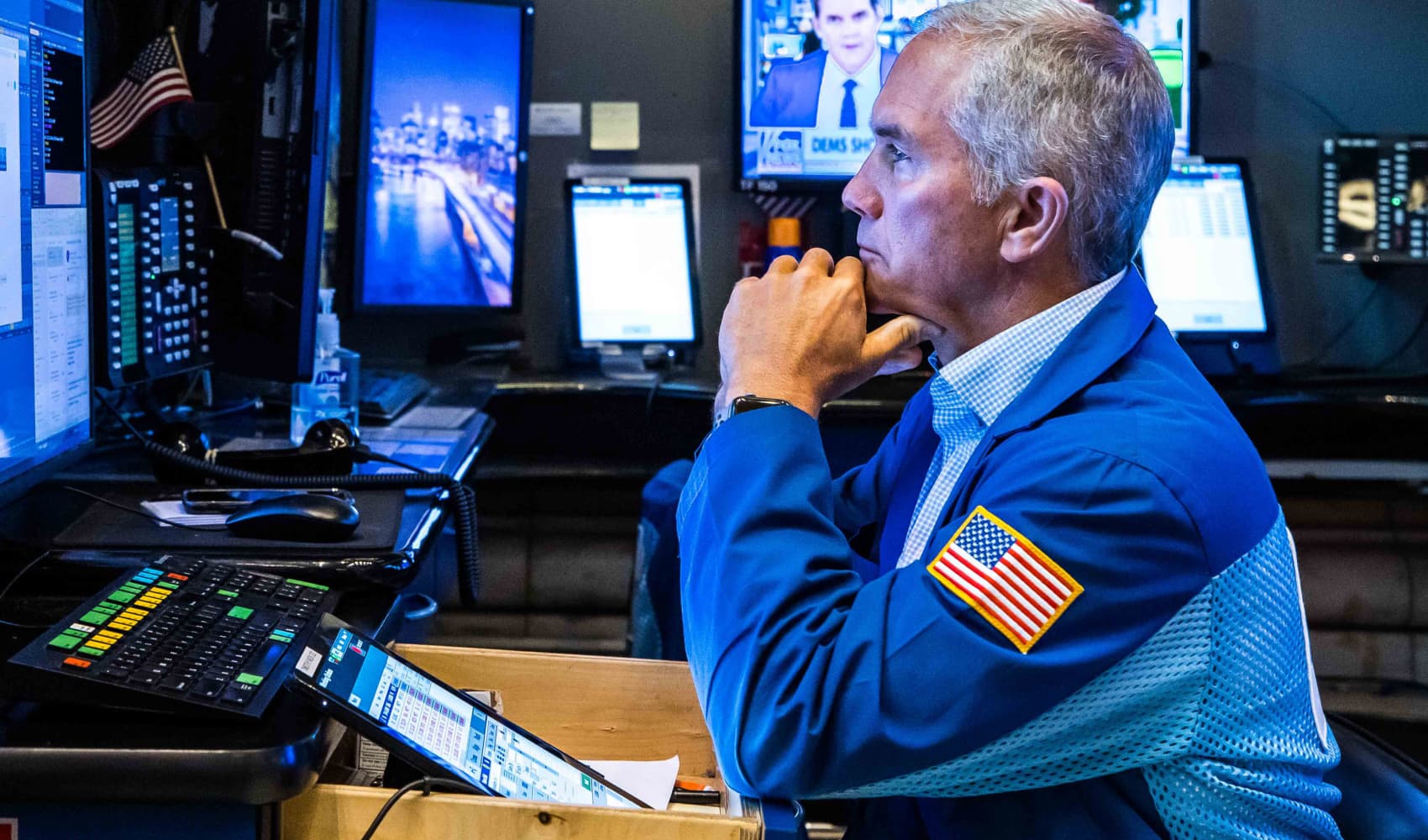
- Retail gas prices – averaging $3.38 per gallon on Oct. 25 – have risen roughly 50% in 2021, surpassing pre-pandemic levels.
- There are "no immediate plans" to tap into emergency reserves or limit energy exports outside the United States, the Energy Department told CNBC.
- Combined with price spikes across a variety of goods, inflation is hitting Americans' wallets and threatening the economic rebound heading into the 2022 midterm elections.
- The White House has acknowledged it has limited options to address the problem.
For months, the Biden administration has vowed to use every tool at its disposal to curb rising energy prices that are contributing to inflation across the country, but there aren't many tools available to the White House.
There are "no immediate plans" to tap into emergency reserves or limit energy exports outside the United States, the Energy Department told CNBC. Those are two market levers the executive branch could pull.
Get San Diego local news, weather forecasts, sports and lifestyle stories to your inbox. Sign up for NBC San Diego newsletters.
Administration officials have suggested privately that a release from the strategic petroleum reserve would have a negligible impact, and curtailing exports would risk angering allies and violating long-term business contracts.
Retail gas prices – averaging $3.38 per gallon on Oct. 25 – have risen roughly 50% in 2021, surpassing pre-pandemic levels. Prices at the pump are increasing as global oil prices surge 70% this year due in part to a rebound in demand from pandemic lows.
Supply is also constrained, with U.S. production below pre-pandemic levels and OPEC and its allies keeping barrels off the global market.
Money Report
The White House has acknowledged it has few options. "There are limitations to what any president can do, as it relates to gas prices," press secretary Jen Psaki told reporters Friday.
The White House said it directed the Federal Trade Commission to investigate possible price gouging and the National Security Council to urge countries represented by OPEC+ to increase production.

Oil prices are the byproduct of market forces of supply and demand, and domestic energy advocates say the White House's own environmental policies have served to limit the supply of oil and natural gas coming into the market.
At the start of the year, President Joe Biden cancelled a permit for the Keystone XL Pipeline and paused drilling activity on federal lands and waters. A judge overturned the drilling ban and ordered the Biden administration to restart leasing activity. The administration is appealing the decision.
The federal government will resume leasing land for oil and gas drilling next year, after the Bureau of Land Management cancelled planned quarterly lease auctions in 2021 to comply with the White House's executive order calling for a comprehensive review of the program.
The Bureau of Ocean Management will lease water in the Gulf of Mexico this year, a sale rescheduled after the federal judge's injunction.
Louisiana is one of 13 energy-producing states that are suing the administration over the drilling ban. State Solicitor General Liz Murrill says the White House should "take the handcuffs" off energy producers if it wants to improve the situation sooner.
"I don't think that the administration can create a problem, and then declare an emergency arising from the problem it created," Murrill told CNBC. "That's not an emergency, that's a problem you created yourself."
Combined with price spikes across a variety of goods, inflation is hitting Americans' wallets and threatening the economic rebound heading into the 2022 midterm elections.
Voters are increasingly blaming Biden for the spike in prices: 66% of respondents in an early October survey conducted by CBS News blamed U.S. government policy for inflation, and 60% said the administration is not focused closely enough on the issue.
"Politically speaking, Democrats need the economy to be going as well as it can," said Stephen Myrow, managing partner of Beacon Policy Advisors and a former Treasury official. "At the same time, [Biden] has prioritized climate change and clean energy, and inevitably there's conflict between those priorities."
The conflict is intensifying in the weeks leading up to the United Nations climate summit beginning in Glasgow, Scotland on Nov. 1. According to progressive lawmakers, Biden has said he needs to show up with a trillion-dollar policy framework on climate change to protect "American prestige."
CNBC's Patrick Manning and Pippa Stevens contributed to this article.






